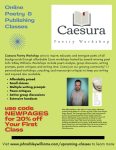Book Review :: One by Haley Lasché
Review by Jami Macarty

In One, Haley Lasché’s debut poetry collection, the poet “claims a bite of language” and invites readers to consider the primacy and implications of “one,” the number and word. Welcome to “imperative’s den”!
Regardless of the part of speech—noun, pronoun, or adjective—the word “one” and its various definitions offer “syntax” and “possibility”; throughout the collection “one” references and “names itself / an unbroken.” But, we are not all in one piece. The meaning of words and their semantic relations lead to inquiry: What are the implications of being “at one with” or “for one”? And, where do harmony and example lead?
One response might be found in the chosen poetic form of the monostich. The one-line stanzas constitute a single moment, observation, or experience within a human body moving within the natural world where it is often nighttime, often cold; human senses awake just as those of the nocturnal possum and owl as the moon comes to light.
Lasché’s synesthetic poetry “is a story told from one eye to the next” from within the “earthen current” where many nights become one night and one within the night becomes one with the night. Where a “spark of voice” joins a “prism of sound,” Haley Lasché’s One is a “song ravenous for light”!
One by Haley Lasché. Beauty School Editions, October 2023.
Reviewer bio: Jami Macarty is the author of The Long Now Conditions Permit, winner of the 2023 Test Site Poetry Series Prize, forthcoming fall 2024, and The Minuses (Center for Literary Publishing, 2020), winner of the 2020 New Mexico/Arizona Book Award – Poetry Arizona. Jami’s four chapbooks include The Whole Catastrophe, forthcoming summer 2024 from the Vallum Chapbook Series, and Mind of Spring (Vallum, 2017), winner of the 2017 Vallum Chapbook Award. To learn more about Jami’s writing, editing, and teaching practices visit her author website.



















































